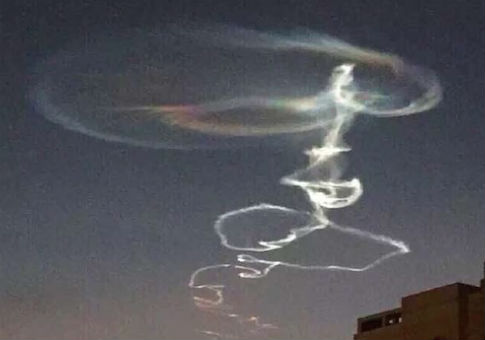The head of U.S. Air Force Space Command said on Tuesday that he is concerned about Russia and China using anti-satellite weapons to create hazardous debris in space, following reports that both countries tested those types of weapons in the last two months.
Gen. John Hyten, commander of the Air Force’s Space Command, told reporters after a Capitol Hill Club event that he is "concerned about any potential threat that would create debris in space," particularly Russia and China’s construction of "kinetic energy anti-satellite weapons."
"It creates an environment that will be there for decades, if not centuries," said Hyten, who is a former engineer on both Air Force and Army anti-satellite weapon system programs. "And you can’t get rid of it."
"So I don’t want to go down that path, and Russia and China are going down that path," he added.
The Washington Free Beacon reported last week that Russia completed its first successful test of the Nudol, a direct ascent anti-satellite missile, on Nov. 18, according to defense officials. That followed China’s test on Oct. 30 of its own direct ascent anti-satellite missile, known as the Dong Neng-3.
Hyten said he could not discuss intelligence information about the recent Russian and Chinese anti-satellite weapons tests.
The destruction of satellites can produce thousands of projectiles of varying size, putting other spacecraft at risk. In 2007, China destroyed one of its own satellites in space as part of its first successful anti-satellite weapons test, creating a debris cloud with thousands of particles in low-earth orbit and threatening about 700 spacecraft for a period of more than 20 years, according to Air Force Space Command.
Once Space Fence becomes operational in 2019—a system that make it easier for the Air Force to track debris and objects in Earth’s orbit—Hyten said the number of traceable items in space could grow tenfold, to more than 200,000 objects. More debris created by anti-satellite weapons would make the space environment even more perilous.
"It’s already becoming problematic to find launch corridors to launch into [geosynchronous orbit]," he said. "Now if you add a debris field into the orbital region that you’re wanting to go to, you’ve got to find a place you can go to. So you’re either going to be increasing your risk posture, or just holding off and waiting and waiting and waiting for when it opens."
Adversaries could also use anti-satellite weapons to disrupt U.S. military operations on Earth during a conflict. Hyten said U.S. forces rely every day on precise GPS signals to conduct missions.
U.S. officials and Americans must recognize that space is a "contested environment now," he said during the event.
"Our culture likes space as a benign environment," he said. "But that’s not the world that we live in."
